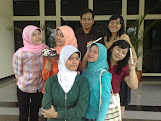Continuum of Mental Health Concept
A. MENTAL HEALTH CONCEPT
Mental health is a term used to describe either a level of cognitive or emotional well-being or an absence of a mental disorder. From perspectives of the discipline of positive psychology or holism mental health may include an individual's ability to enjoy life and procure a balance between life activities and efforts to achieve psychological resilience.
Mental health, as defined by the Surgeon General's Report on Mental Health, "refers to the successful performance of mental function, resulting in productive activities, fulfilling relationships with other people, and the ability to adapt to change and cope with adversity." On the other end of the continuum is mental illness, a term that "refers to all mental disorders.
Mental disorders are health conditions that are characterized by alterations in thinking, mood, or behavior (or some combination thereof) associated with distress and/or impaired functioning." This notion of a continuum sees mental health on one end as 'successful mental functioning' compared to mental illness on the other end as 'impaired functioning.'
The World Health Organization defines mental health as "a state of well-being in which the individual realizes his or her own abilities, can cope with the normal stresses of life, can work productively and fruitfully, and is able to make a contribution to his or her community”. It was previously stated that there was no one "official" definition of mental health. Cultural differences, subjective assessments, and competing professional theories all affect how "mental health" is defined.
Mental health, as a concept, is quite distinct from mental illness, and enhancement of mental health plays no part in what most mental health professionals actually do. Instead, the Western medical model relies primarily upon the Diagnostic and Statistical Manual of Mental Disorders (DSM-IV) or ICD-10 to diagnose and treat the symptoms associated with what they call mental illnesses and disorders.
Mental health can be seen as a continuum, where an individual's mental health may have many different possible values. Mental wellness is generally viewed as a positive attribute, such that a person can reach enhanced levels of mental health, even if they do not have any diagnosable mental health condition. This definition of mental health highlights emotional well-being, the capacity to live a full and creative life, and the flexibility to deal with life's inevitable challenges. Many therapeutic systems and self-help books offer methods and philosophies espousing strategies and techniques vaunted as effective for further improving the mental wellness of otherwise healthy people. Positive psychology is increasingly prominent in mental health.
A holistic model of mental health generally includes concepts based upon anthropological, educational, psychological, religious and sociological perspectives, as well as theoretical perspectives from personality, social, clinical, health and developmental psychology.
An example of a wellness model includes one developed by Myers, Sweeney and Witmer. It includes five life tasks : essence or spirituality, work and leisure, friendship, love and self-direction. And twelve sub tasks : sense of worth, sense of control, realistic beliefs, emotional awareness and coping, problem solving and creativity, sense of humor, nutrition, exercise, self care, stress management, gender identity, and cultural identity. There are identified as characteristics of healthy functioning and a major component of wellness. The components provide a means of responding to the circumstances of life in a manner that promotes healthy functioning.
But in reality for many peoples, our health particularly our mental health is often taken for granted until something goes wrong. Only then do we realize just how important health is to our sense of fulfillment and happiness.
So why should every people care about their mental health? The most obvious answer is that without being mentally healthy, an individual cannot consider herself "healthy" in the true sense of the word. More importantly, however, mental health affects our physical and social health.
B. MENTAL HEALTH CRITERIA ACCORDING YAHODA
1. positive attitude about yourself
2. growth and self-actualization
3. integration (balance / wholeness)
4. autonomy
5. perceptions of reality
6. proficiency in the adaptation to the environment
C. RANGE OF MENTAL HEALTH
1. dynamic rather than static point
2. range starts from optimal health and death
3. there stages
4. individual variation
5. describes the ability of adaptation
6. function effectively: a healthy
References :
Yosep, iyus. 2007. Keperawatan Jiwa. Refika Aditama. Bandung
_________. 2009. Basic Concept of Psychiatric-Mental Health Nursing. (online), (available at http://www.ovid.com/site/catalog/Book/2670.jsp?top=2&mid=3&bottom=7&subsection=11
accesed on 4 December 2009).
Glasser, William. 2009. Mental Health : Encyclopedia II-Mental Health-Mental Hygiene Concept. (online), (available at http://www.experiencefestival.com/a/Mental_health_-_Mental_hygiene_concept/id/595820 accesed on 4 December 2009).
____________. 2009. Discovery Health : What is Mental Health ?. (online), (available at http://health.discovery.com/centers/mental/whatis/whatis_03.html accesed on 4 December 2009).






